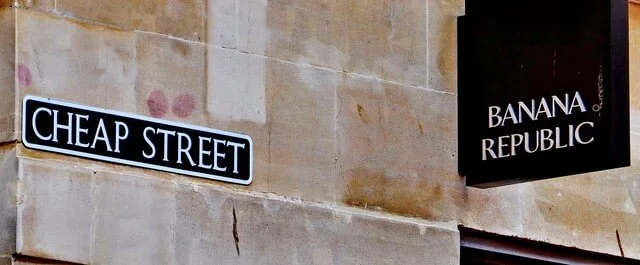Why we should have skin in the game…
The expression “skin in the game” references one’s personal investment or risk in their decision making. This is often associated with financial investments but doesn’t need to be, as the “skin” can be related to our status, reputation, or safety. If someone has skin in the game they should benefit from the “upside” but be negatively impacted by the “downside.” Paying into a game of poker is a simple example.
Skin in the game matters.
Now imagine this: You see a row of ten houses. Nine of them have finely manicured lawns, flourishing gardens, and clean windows. One doesn’t. Any guesses as to why?
You would rightfully assume that the one house is occupied by renters. While not necessary, it is a largely accurate stereotype that highlights the importance of skin in the game. When we don’t own something we have far less motivation to care for it (and in the case of a house, it isn’t ‘our’ investment). It is very hard to find people that aren’t heavily impacted by skin in the game (which is why it is really difficult to find great renters).
While it is hard to argue that having skin in the game isn’t significant, we live in a world where there is increased asymmetry in this relationship. In other words, there are more incentives than disincentives (i.e. there is less risk). Let’s discuss a few examples.
Politicians. They make decisions that will affect (our) personal taxes, whether individuals go to war, and whether they will support various interest groups. These decisions don’t impact their finances and they don’t have to ever leave the comfort and safety of their own homes. There is major upswing (prestige, power, etc.) with minimal downswing (minor pushback from apathetic voters, barking from the opposition).
“How much you truly ‘believe’ in something can be manifested only through what you are willing to risk for it.”
CEOs. They can make decisions that lead to the downfall of the company and still walk away with million dollar bonuses. LOTS of upswing with minimal downswing.
Journalists. They can publish articles to grab attention that turn out to be completely false. There is a dissociation from this: there is no major public backlash and, in fact, this is almost expected as consumers are very apathetic to the integrity of written work.
Lack of accountability and risk decreases credibility…
Now let’s talk a little bit about how skin in the game improves life for all of us. If there is more risk, people put in more effort in what they are doing--it is a fight or flight, survival-type scenario that demands our best efforts. While this can seem cruel, this cruelty leads to very clear improvements in many industries. Think about food for a second…
Where do you find the best restaurants? Do you find them in the smallest town without any competition or do you go to larger cities for fine dining? People rave about food where there is natural selection. Food in New York improves from bankruptcy to bankruptcy. Compare the food in immortal public intuitions (i.e. hospitals) to mortal private ones (i.e. local restaurants). Which one has more skin in the game?
What about innovation? While universities are often praised as being amazing learning hubs, how many great innovations have come from university campuses where tenured professors spend their days doing research? Not surprisingly, we see the most influential innovations coming from private enterprises such as Apple, Alphabet (Google), and Tesla.
But skin in the game is at play with our daily “consumption” as well.
While we think we want things for free, our dedication and commitment to free things says otherwise. There is a noted psychological phenomenon called “sunk-cost bias,” which leads us to commit more when we have invested cost (money, time, effort). A simple example is when someone orders too much food they will overeat to get their money’s worth. On a positive spin, if someone pays for a personal trainer, they have a far greater likelihood to follow-through and improve (and get their money’s worth). So, in reality, when things are free we simply value them less and are at risk of getting less benefit.
What we pay for things matters…
Sometimes we need to change our perspective and recognize that the risk of harm (whether it be financial or otherwise) is often the best thing for ourselves and the world at large.
Thanks for reading and challenging the way you think. Here’s a final quote to ponder on to finish today’s post:
“Freedom is always associated with risk taking, whether it leads to it or comes from it.”
-Tyler






